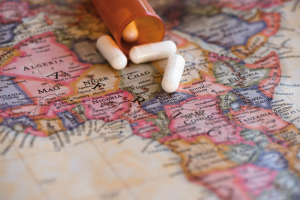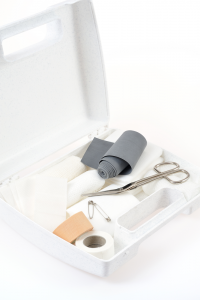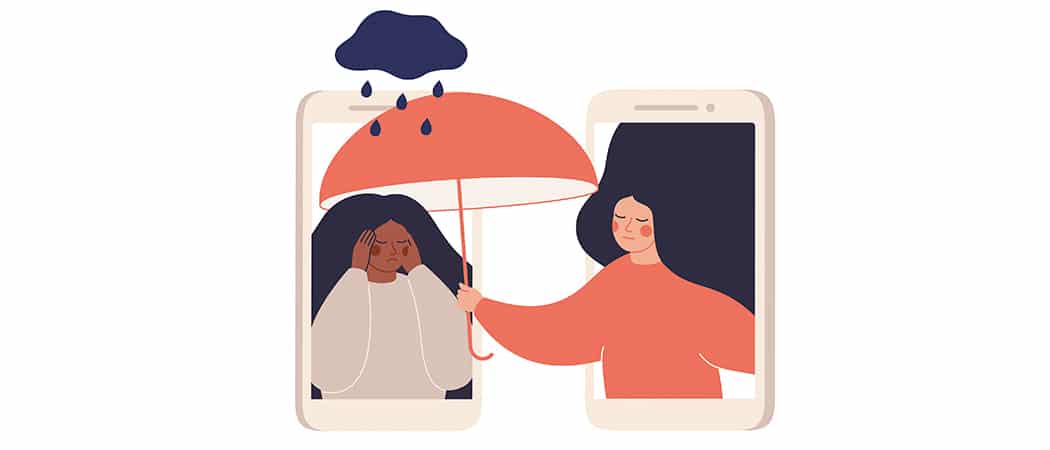When planning a trip, whether for work or leisure, there are certain health-related issues we have to take into account. We offer you here some tips for before, during and after the trip.
TEXT Área Corporativa de Recursos Humanos | PHOTOS Thinkstock
BEFORE
It is very useful to have advance knowledge of health issues in the destination country – the kind of healthcare system it has and whether there exists some form of reciprocal agreement with our own country. For this reason we recommend you visit the “Countries” section of the World Health Organization’s website, where you can also access the health authorities corresponding to each country, with specific recommendations for each region.
Whenever possible, plan your trip sufficiently in advance, given that, in some countries, it is advisable – or sometimes, even, mandatory – to be vaccinated at least eight weeks beforehand in order to provide a minimum level of protection.
Should you take medication for some chronic condition, it is important to heed this advice:
- Visit your doctor, as he must prescribe you a sufficient quantity to last the period you will be overseas, and provide you with a medical report specifying this medication, in case it proves necessary to justify it at some border crossing.
- Take enough medication with you, even a few extra pills.
- When traveling by plane, distribute your medication between your carry-on and checked baggage, given that, should either of them go missing, you will always have the medication you need, at least for a few days.
According to the means of transport used, certain repercussions for our state of health must also be borne in mind. In the specific case of flights:
- Generally speaking, healthy babies can travel by plane 48 hours after birth, but it is preferable to wait until they are at least seven days old.
- Pregnant women can usually travel safely, but most airlines place restrictions on them flying in the final stage of their pregnancy. From week 28 onward, it is advisable to have a gynecological medical report which confirms that the pregnancy is proceeding normally and states the estimated due date.

DURING
When traveling to a foreign country, special care must be taken with the food and water you consume. One of the most frequent pathologies is “traveler’s diarrhea” which can affect up to 80 percent of travelers to high-risk destinations.
Some of the precautionary measures with unsafe foods and beverages include, in general, avoiding:
- Foodstuffs that have been kept at room temperature for several hours (uncovered meals in buffets or at street vendor stalls).
- Raw food, except fruit and vegetables you peel or shell yourself, and avoid fruit with damaged skin.
- Ice, unless it is made from some known source of water or bottled water.
- Food containing raw or undercooked eggs.
- Ice cream from unreliable sources, such as street vendors.
- Boil unpasteurized milk before drinking it.
- Always wash up with soap and water before preparing or eating any food.
- With bottled drinks, check that the manufacturer’s seal is intact.
In addition, bear in mind…
- Insect bites, as they are a means of transmitting infectious diseases: useful tips include repellents, mosquito nets, air conditioning in your room, and avoiding going out at dusk.
- Excursions: as a general recommendation for any kind of excursion we are planning to go on: “drink before you get thirsty, eat before you get hungry, wrap up well before you get cold and rest before you are exhausted.”
- Be careful with sunburn: it is important to protect yourself with high-factor sunscreen, hats and sunglasses. And take special care with infants and the elderly.
AFTER
Some diseases do not develop immediately and may manifest themselves some time after you return.
In the event of any discomfort or upset appearing that leads to you visiting your doctor, you must inform them of any trips you have made in the last 12 months (including the destination, duration, purpose of the trip, as well as any medications or vaccinations).
Follow this advice and have a good trip!
MAPFRE has created the We Travel With You site within the People Space of the new corporate intranet, offering contents on safety, health, and others items of interest to inform and support our employees when traveling to other countries

WHAT MUST A BASIC HEALTH KIT INCLUDE?
This is merely intended as a guideline, as each person is different. It is important to consult your family doctor regarding the contents
of your health kit and always heed their indications.
Band aids or adhesive bandages
Antiseptic wound cleanser or alkaline soap
Bandages
Scissors
Safety pins
Insect repellent
Treatment for insect bites
Antidiarrheal or antiemetic (for vomiting and/or nausea) medication
Antihistamines
Simple painkiller
Antacid
Sunscreen
Items according to individual needs, such as medication for pre-existing health conditions




